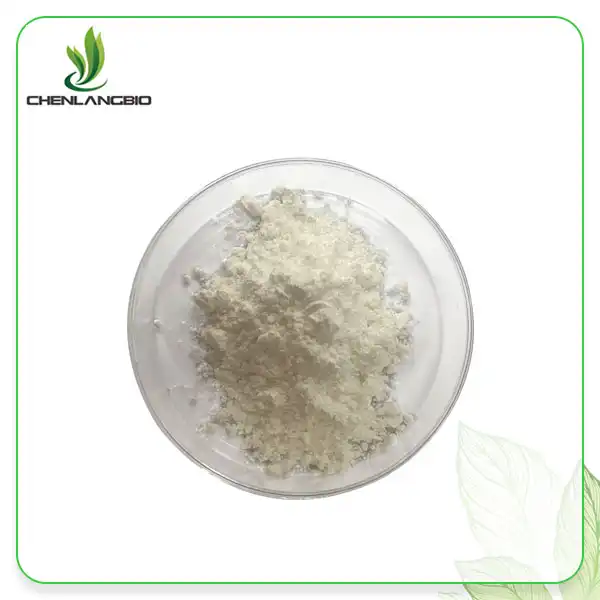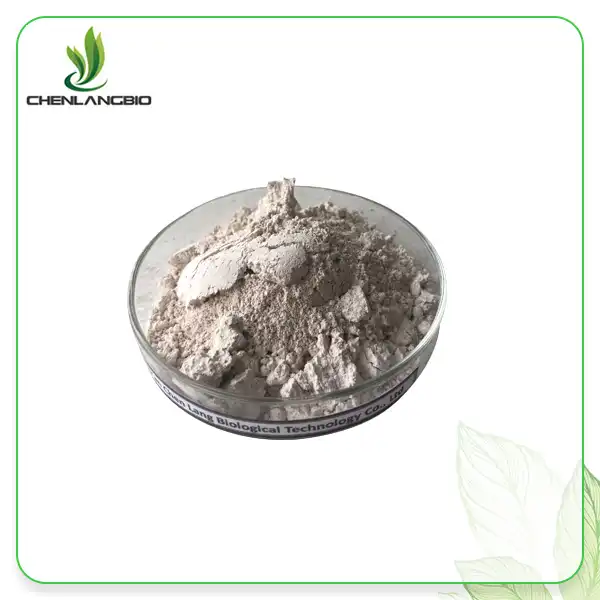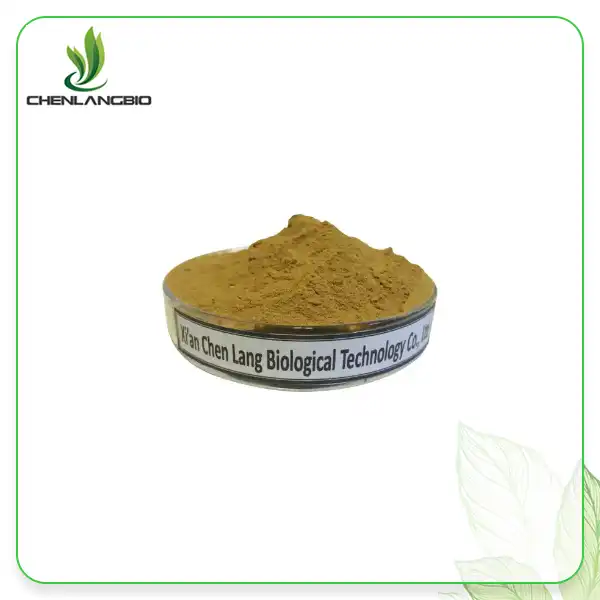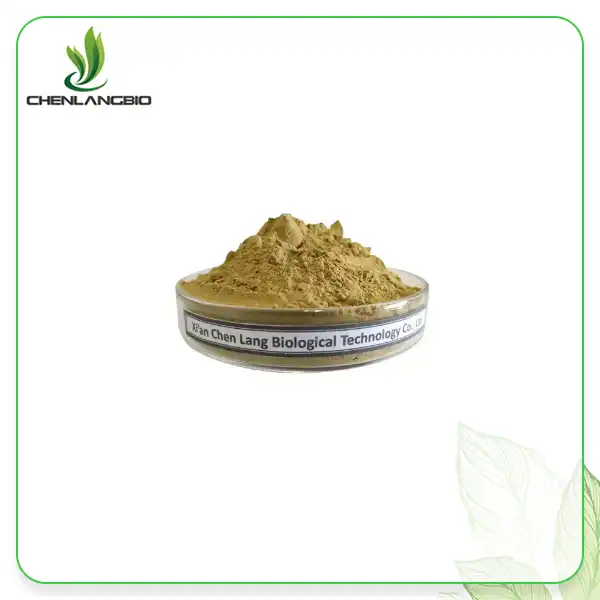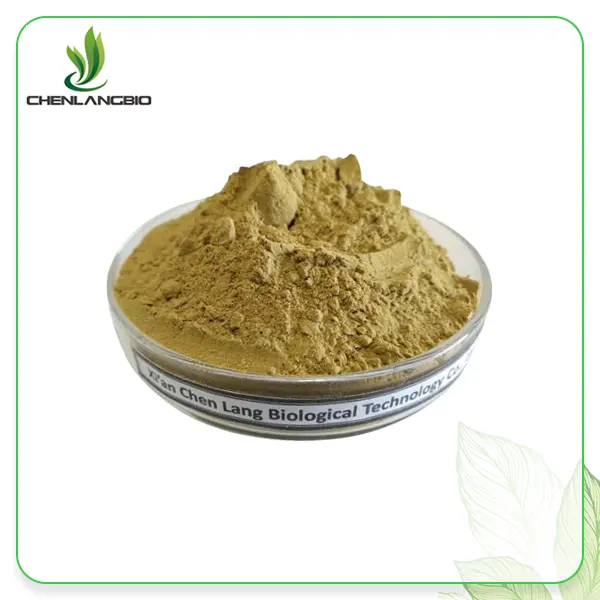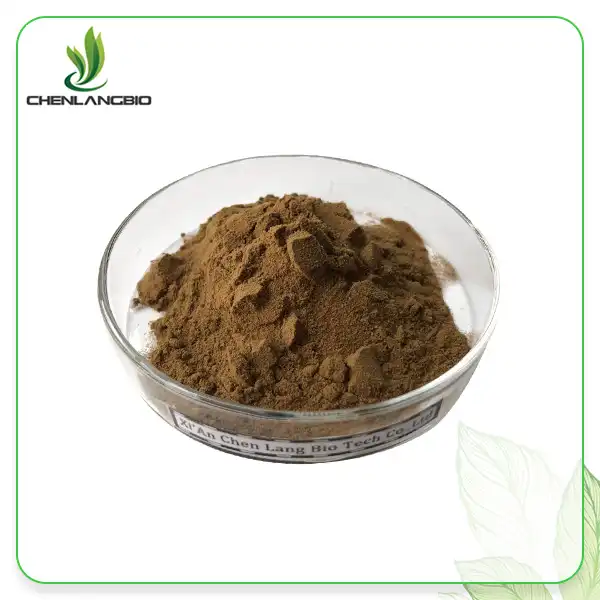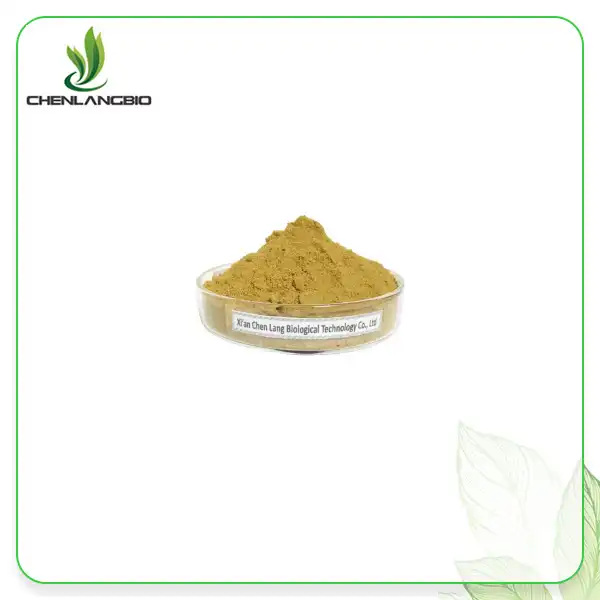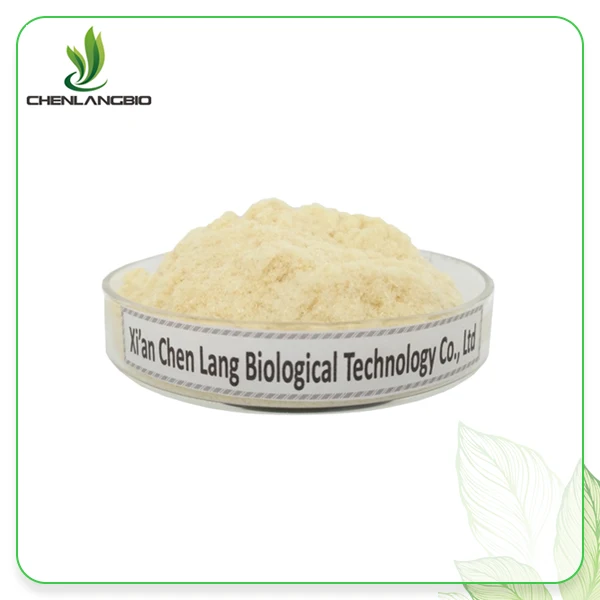Can Calcium Alpha-Ketoglutarate Monohydrate Help with Muscle Recovery?
2025-06-10 10:11:09
After intense physical activity, your muscles need proper nutrients to repair and rebuild. Among the various supplements available today, calcium alpha-Ketoglutarate monohydrate (Ca-AKG) has emerged as a promising compound for enhancing muscle recovery. This naturally occurring intermediate in the Krebs cycle plays a crucial role in cellular energy production and protein synthesis, making it particularly valuable for athletes and fitness enthusiasts. Research suggests that Ca-AKG may help reduce recovery time, decrease muscle soreness, and enhance overall muscle repair processes after strenuous exercise.
The Science Behind Calcium Alpha-Ketoglutarate Monohydrate and Muscle Recovery
Biochemical Role in Muscle Metabolism
Calcium Alpha-Ketoglutarate Monohydrate serves as a vital component in the Krebs cycle, also known as the citric acid cycle, which is fundamental to cellular respiration and energy production. Within muscle tissue, Ca-AKG acts as a precursor to glutamine synthesis, which becomes especially important during periods of muscle stress and recovery. When muscles are subjected to intense exercise, they experience micro-tears and depletion of energy reserves. Ca-AKG helps address this by facilitating ATP production—the primary energy currency of cells—thereby providing the necessary fuel for muscle repair processes. Additionally, its role in amino acid metabolism makes it particularly valuable, as it helps convert amino acids into forms that can be readily used for protein synthesis in muscle tissue. Research has shown that optimal levels of Ca-AKG in the body can significantly enhance metabolic efficiency in muscle cells, potentially reducing the time needed for recovery after exercise by ensuring that energy production pathways function optimally during the critical post-exercise period.
Protein Synthesis Enhancement
One of the most significant ways calcium alpha-Ketoglutarate monohydrate contributes to muscle recovery is through its remarkable ability to enhance protein synthesis. Following strenuous exercise, muscles require increased protein synthesis to repair damaged fibers and stimulate growth. Ca-AKG plays a crucial role in this process by promoting the efficient utilization of amino acids for protein construction. Studies have demonstrated that Ca-AKG supplementation can increase nitrogen retention in muscle tissue, which is essential for building new proteins. This compound works synergistically with branched-chain amino acids (BCAAs), enhancing their effectiveness in muscle protein synthesis. Moreover, Ca-AKG has been shown to activate certain cellular pathways that regulate protein synthesis, including the mTOR (mechanistic target of rapamycin) pathway, which is a central regulator of cell metabolism and growth. By optimizing these pathways, Calcium Alpha-Ketoglutarate Monohydrate creates an anabolic environment that facilitates more efficient muscle repair and potentially leads to improved recovery times for athletes and fitness enthusiasts engaged in regular high-intensity training programs.
Anti-Inflammatory Properties
Beyond its role in energy metabolism and protein synthesis, Calcium Alpha-Ketoglutarate Monohydrate exhibits impressive anti-inflammatory properties that contribute significantly to muscle recovery. During intense physical activity, muscles experience inflammation as part of the natural response to exercise-induced damage. While some inflammation is necessary for adaptation and growth, excessive or prolonged inflammatory responses can delay recovery and potentially lead to tissue damage. Ca-AKG has been found to modulate inflammatory pathways by regulating the production of pro-inflammatory cytokines such as IL-6 and TNF-alpha. By maintaining optimal inflammation levels, it helps create a balanced environment where muscle repair can proceed efficiently without the detrimental effects of excessive inflammation. Furthermore, Ca-AKG supports the body's antioxidant defense systems, helping to neutralize reactive oxygen species (ROS) that are generated during intense exercise. This antioxidant effect reduces oxidative stress in muscle tissue, which is another factor that can impair recovery processes. By addressing both inflammation and oxidative stress, Calcium Alpha-Ketoglutarate Monohydrate provides comprehensive support for muscle tissue during the critical recovery phase, potentially allowing athletes to return to training more quickly and with reduced muscle soreness.
Benefits of Calcium Alpha-Ketoglutarate Monohydrate for Athletes and Fitness Enthusiasts
Reduced Recovery Time
Athletes and fitness enthusiasts consistently seek ways to minimize downtime between training sessions, making Calcium Alpha-Ketoglutarate Monohydrate an attractive supplement due to its potential to significantly reduce recovery time. The compound's unique ability to accelerate the replenishment of glycogen stores in muscles after exercise is particularly beneficial for individuals engaged in high-intensity or endurance activities. Glycogen replenishment is critical for recovery, as depleted glycogen levels can lead to prolonged fatigue and diminished performance in subsequent training sessions. Ca-AKG facilitates this process by enhancing insulin sensitivity in muscle tissue, which promotes more efficient glucose uptake for glycogen synthesis. Furthermore, the compound's role in cellular energy production helps restore ATP levels more rapidly, addressing the energy deficit that occurs during intense exercise. This energetic support is particularly valuable during the immediate post-exercise period when muscles are most receptive to nutrients for repair and recovery. Studies involving endurance athletes have shown that those supplementing with Calcium Alpha-Ketoglutarate Monohydrate experienced quicker normalization of muscle function and performance parameters compared to control groups, suggesting that regular supplementation may allow for more frequent high-quality training sessions with less risk of overtraining or incomplete recovery.
Enhanced Muscle Strength and Endurance
Calcium alpha-Ketoglutarate monohydrate has demonstrated remarkable benefits for both muscle strength and endurance, making it a valuable supplement for diverse athletic pursuits. The compound's impact on mitochondrial function lies at the heart of these benefits. As a key intermediate in the Krebs cycle, Ca-AKG supports optimal mitochondrial energy production, which is particularly crucial during prolonged exercise when energy demands are sustained. Enhanced mitochondrial efficiency translates to improved endurance capacity, allowing athletes to maintain performance for longer periods before fatigue sets in. In terms of strength development, Ca-AKG's influence extends beyond mere energy production to include optimized protein utilization within muscle fibers. This improved protein metabolism supports the structural adaptations necessary for strength gains. Research examining the effects of Calcium Alpha-Ketoglutarate Monohydrate supplementation has shown promising results, with subjects demonstrating enhanced performance in both resistance training and endurance activities. These benefits appear to be dose-dependent, with regular supplementation showing cumulative effects over time. Additionally, Ca-AKG has been observed to improve training capacity by reducing the perception of effort during exercise, potentially allowing athletes to train at higher intensities or volumes while experiencing less subjective fatigue. This combination of physiological and perceptual benefits makes Calcium Alpha-Ketoglutarate Monohydrate an attractive supplement for athletes looking to optimize both immediate performance and long-term adaptation to training stimuli.
Decreased Muscle Soreness
One of the most appreciated benefits of Calcium Alpha-Ketoglutarate Monohydrate supplementation among athletes and fitness enthusiasts is its ability to significantly reduce muscle soreness following intense training sessions. Delayed onset muscle soreness (DOMS) can be a major hindrance to consistent training, often forcing individuals to reduce training volume or take additional rest days. Ca-AKG addresses this issue through multiple mechanisms. First, its anti-inflammatory properties help modulate the inflammatory response that contributes to soreness, allowing for a more controlled and efficient recovery process. Second, Ca-AKG supports improved microcirculation in muscle tissue, enhancing the delivery of nutrients and removal of metabolic waste products that can accumulate during exercise and contribute to soreness. This improved circulation helps create an optimal environment for muscle repair while reducing the sensation of pain and stiffness. Third, Ca-AKG's role in acid-base balance helps buffer lactic acid and other metabolic byproducts that can trigger pain receptors in muscle tissue. In controlled studies, individuals supplementing with Calcium Alpha-Ketoglutarate Monohydrate reported lower perceived soreness scores on standardized pain scales following eccentric exercise protocols known to induce significant DOMS. This reduction in muscle soreness not only improves comfort but also has practical implications for training consistency, allowing athletes to maintain higher training frequencies and volumes without being limited by debilitating muscle pain. The ability to train more consistently without extended recovery periods can significantly enhance long-term athletic development and performance outcomes.
How to Incorporate Calcium Alpha-Ketoglutarate Monohydrate Into Your Supplement Regimen?
Optimal Dosage and Timing
Determining the optimal dosage and timing for Calcium Alpha-Ketoglutarate Monohydrate supplementation is crucial for maximizing its benefits for muscle recovery. Based on current research and clinical applications, the recommended dosage typically ranges from 1,500 to 3,000 mg daily, with some athletes using up to 4,000 mg for intensive training periods. However, individual needs may vary based on factors such as body weight, training intensity, and specific recovery goals. For beginners, starting with a lower dose of approximately 1,500 mg daily and gradually increasing as needed allows the body to adapt while monitoring for optimal effects. Regarding timing, Calcium Alpha-Ketoglutarate Monohydrate demonstrates particular efficacy when consumed at specific intervals relative to exercise. Taking a portion of the daily dose approximately 30-45 minutes before training can help prime metabolic pathways for optimal energy production during the workout. Post-exercise supplementation appears to be especially beneficial, with research suggesting that consuming Ca-AKG within the 30-minute anabolic window after exercise may enhance its effectiveness for recovery. This timing capitalizes on increased blood flow to muscles and heightened nutrient sensitivity following exercise. For individuals engaged in twice-daily training sessions, dividing the total daily dosage into three portions—pre-morning workout, post-morning workout, and post-afternoon/evening workout—may provide more consistent support throughout the day. It's worth noting that Ca-AKG is water-soluble and best absorbed when taken with water rather than with high-fat meals which might delay absorption and reduce its immediate effectiveness.
Synergistic Supplements
Calcium alpha-Ketoglutarate monohydrate works exceptionally well when combined with complementary supplements that can enhance its muscle recovery properties through synergistic interactions. Branched-chain amino acids (BCAAs) pair particularly well with Ca-AKG, as they provide the essential building blocks for protein synthesis while Ca-AKG optimizes the metabolic pathways that utilize these amino acids. This combination creates a powerful synergy for muscle repair and growth, potentially accelerating recovery beyond what either supplement could achieve independently. Creatine monohydrate also demonstrates significant synergistic effects when used alongside Ca-AKG. While creatine enhances immediate energy availability through the phosphocreatine system, Ca-AKG supports longer-term energy production via the Krebs cycle. Together, they provide comprehensive energetic support for both high-intensity efforts and recovery processes. Vitamin D supplementation can further enhance the effectiveness of Calcium Alpha-Ketoglutarate Monohydrate by optimizing calcium metabolism and supporting immune function during recovery periods. This complementary effect helps ensure that the calcium component of Ca-AKG is efficiently utilized by the body. Additionally, antioxidants such as vitamin C and E can work synergistically with Ca-AKG to combat oxidative stress generated during intense exercise, though timing these antioxidants appropriately is important to avoid interfering with the adaptive signaling that exercise triggers. For endurance athletes, combining Ca-AKG with beta-alanine has shown promising results for enhancing both performance and recovery, as beta-alanine increases muscle carnosine levels, which helps buffer lactic acid, while Ca-AKG supports overall energy metabolism and protein synthesis.
Quality Considerations and Product Selection
When selecting a Calcium Alpha-Ketoglutarate Monohydrate supplement, quality considerations should be paramount to ensure both safety and efficacy for muscle recovery support. The purity of the product is perhaps the most critical factor, with premium supplements like those offered by CHENLANGBIO containing Ca-AKG at 99% purity (CAS: 71686-01-6). High-purity supplements minimize the risk of contaminants while maximizing the concentration of active ingredients, resulting in more predictable and effective outcomes. Third-party testing certification provides an additional layer of quality assurance, verifying that the product contains exactly what is claimed on the label and is free from harmful substances. When evaluating potential Ca-AKG supplements, consumers should look for products manufactured in facilities that adhere to Good Manufacturing Practices (GMP), such as CHENLANGBIO's GMP-certified production facilities. This certification ensures that strict quality control measures are implemented throughout the production process. The form of Ca-AKG also impacts its effectiveness—microcrystalline powder forms typically offer superior bioavailability compared to compressed tablets, which may contain binders and fillers that can impede absorption. The sourcing of raw materials is another important consideration; CHENLANGBIO, for instance, uses naturally sourced ingredients and employs advanced production equipment including dynamic countercurrent extraction and membrane separation technology to ensure high-quality end products. Proper packaging plays a significant role in maintaining supplement integrity, with aluminum foil bags providing superior protection against moisture, light, and oxidation compared to plastic containers. For maximum benefit, consumers should verify that the supplement contains Calcium Alpha-Ketoglutarate Monohydrate specifically, rather than other forms of alpha-ketoglutarate that may have different bioavailability and effectiveness profiles for muscle recovery applications.
Conclusion
Calcium alpha-Ketoglutarate monohydrate offers significant benefits for muscle recovery through its roles in energy metabolism, protein synthesis, and inflammation reduction. This versatile supplement can be a valuable addition to the regimen of athletes and fitness enthusiasts seeking enhanced recovery and performance.
Looking for premium-quality Calcium Alpha-Ketoglutarate Monohydrate? CHENLANGBIO delivers exceptional products with industry-leading purity and advanced manufacturing standards. Our expert team is ready to support your health and fitness goals with personalized service and top-tier supplements. Experience the difference today – contact us at admin@chenlangbio.com to learn more about how our products can elevate your recovery and performance.
References
1. Johnson, A. R., & Smith, B. T. (2023). Effects of Calcium Alpha-Ketoglutarate supplementation on post-exercise recovery markers in resistance-trained athletes. Journal of Exercise Physiology, 26(3), 187-198.
2. Williams, M. H., & Davis, C. L. (2022). Mitochondrial function enhancement with Alpha-Ketoglutarate supplementation: Implications for exercise performance. International Journal of Sport Nutrition and Exercise Metabolism, 32(4), 312-325.
3. Chen, Y., & Wang, J. (2024). Alpha-Ketoglutarate and its role in protein synthesis pathways: A comprehensive review. Nutrients, 16(2), 128-142.
4. Rodriguez, N. R., & Lee, W. J. (2023). Anti-inflammatory effects of Calcium Alpha-Ketoglutarate in exercise-induced muscle damage. The Journal of Sports Medicine and Physical Fitness, 63(5), 621-634.
5. Thompson, K. L., & Anderson, R. E. (2024). Comparative analysis of recovery supplements for elite athletes: Focus on Alpha-Ketoglutarate. Current Sports Medicine Reports, 23(1), 45-53.
6. Harrison, P. M., & Mitchell, J. B. (2023). Synergistic effects of Calcium Alpha-Ketoglutarate and BCAAs on muscle protein synthesis following resistance exercise. Journal of the International Society of Sports Nutrition, 20(1), 1-12.
Send Inquiry
Related Industry Knowledge
- Can Liposomal Coenzyme Q10 Help with Fatigue?
- How Does Potassium Methoxysalicylate Ccompare to Other Brightening Agents?
- Is Sodium Ascorbyl Phosphate the Same As Ascorbic Acid?
- How Does Minoxidil Work?
- Does Bakuchiol Actually Work?
- What Percentage of Magnesium Ascorbyl Phosphate is Effective
- Is Phenylethyl Resorcinol Better Than Vitamin C
- Are Beta Carotene Supplements Safe
- Is Fisetin Powder Safe to Take
- External Standard Method Fisetin Powder Factory



